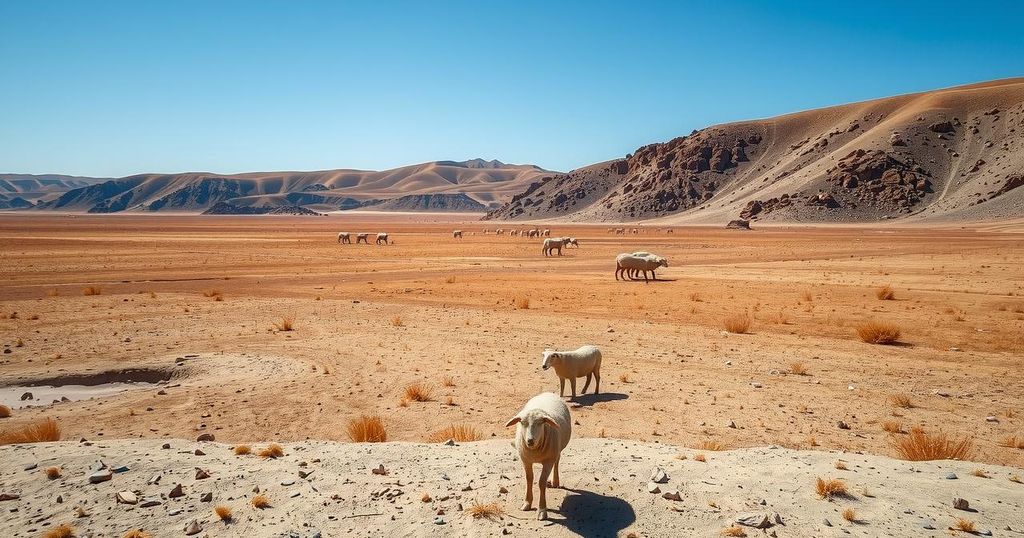King Mohammed VI of Morocco has asked citizens to refrain from slaughtering sheep for Eid Al-Adha due to significant declines in livestock herds caused by drought. The King highlighted the economic challenges this presents for those with limited incomes. Efforts to stabilize meat prices include importing sheep from Australia and suspending relevant taxes in the 2025 budget.
In light of the ongoing drought, King Mohammed VI of Morocco has urged citizens to refrain from slaughtering sheep during this year’s Eid Al-Adha, which is set to occur in June. This traditional Islamic holiday commemorates Ibrahim’s (Abraham’s) readiness to sacrifice his son as commanded by God. Generally, the occasion involves the slaughter of sheep or goats, with the meat distributed among family and the less fortunate.
Recent statistics indicate that Morocco’s sheep and cattle herds have experienced a significant decline of 38 percent since the last census nine years ago, attributed to prolonged drought conditions. The King emphasized the necessity of weighing the climatic and economic challenges affecting the nation against the desire to partake in religious traditions.
The King, in a statement delivered by the Minister of Religious Affairs, Ahmed Taoufiq, noted that performing the ritual under the current circumstances would adversely impact many, particularly those with limited financial means. As rainfall this year has been notably low—53 percent less than the 30-year average—this has resulted in insufficient pasture for livestock.
Consequently, meat production has diminished, escalating local prices and prompting increased imports of live cattle, sheep, and red meat. In an effort to stabilize the market, Morocco has recently finalized an agreement to import 100,000 sheep from Australia and has also suspended related import duties and value-added taxes in its 2025 budget.
In summary, King Mohammed VI’s appeal to abstain from sheep slaughter during Eid Al-Adha reflects the dire impact of climate-induced challenges on Morocco’s livestock sector. With a notable drop in herds and reduced rainfall affecting pastoral resources, the Kingdom aims to mitigate economic strain on its populace while maintaining its religious observances appropriately. This initiative underscores the delicate balance between tradition and the pressing realities of environmental and economic conditions.
Original Source: www.arabnews.com






